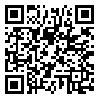BibTeX | RIS | EndNote | Medlars | ProCite | Reference Manager | RefWorks
Send citation to:
URL: http://ijme.mui.ac.ir/article-1-4297-en.html
Introduction: Information literacy is a set of skills for identifying and accessing the right information resources, and the ability to use them purposefully and is a tool for individual empowerment, which is very important for students. The purpose of this study was to assess the correlation of critical thinking skills and metacognitive strategies with information literacy of graduate students.
Methods: This descriptive correlational study was conducted on 274 graduate students of Arak University in 2012-13 academic year. Subjects were selected using stratified random sampling. Data collection tools were California Critical Thinking Skills Form B, metacognitive state questionnaire and a researcher-made information literacy questionnaire. Cut-off point was set at 20 for critical thinking skills. The highest and lowest scores were 80 and 20 respectively in the metacognitive state questionnaire and for information literacy they were 145 and 29 respectively. Multiple linear regression and correlation were used to analyze the data.
Results: The mean score of critical thinking skills was 21.46±7.12 and at a desirable level. The mean score of metacognitive strategies was 62.36±7.67. The mean score of information literacy was 96.72±15.19. No significant relationship was found between critical thinking skills and information literacy (p=0.924, r=0.006) and also between critical thinking skills and metacognitive strategies (p=0.883, r=-0.009). However, there was a significant relationship between metacognitive strategies and information literacy (p=0.0001, r=0.431). Results of regression analysis showed that only metacognitive strategies was the fitted predictor of information literacy.
Conclusion: As metacognitive strategies of students increase, so does their information literacy. It is therefore suggested to include metacognitive strategies training in higher education programs so that students will act as independent learners in self-learning processes.
Received: 2016/12/13 | Accepted: 2017/05/20 | Published: 2018/03/11 | ePublished: 2018/03/11
| Rights and permissions | |
 |
This work is licensed under a Creative Commons Attribution-NonCommercial 4.0 International License. |




